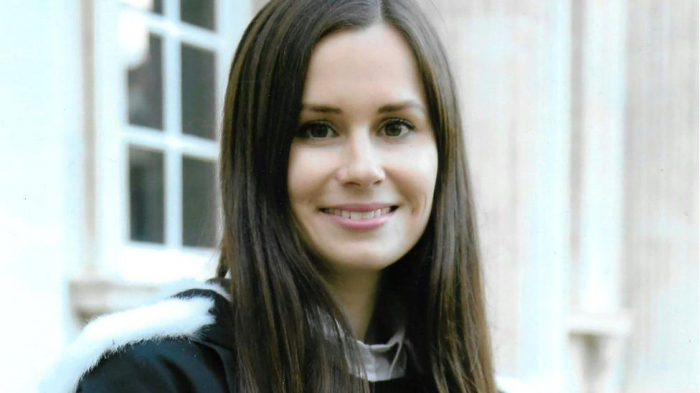A British-Australian academic, who was jailed in Iran for spying, said the Iranian authorities tried to recruit her as a spy during her detention, BBC reported.
Kylie Moore-Gilbert was also kept in solitary confinement for seven months - a form of "psychological torture" she says drove her to consider suicide.
She was arrested in Iran in September 2018 and sentenced to 10 years in prison.
But she was released in a swap for three jailed Iranians last November.
In an interview with Sky News Australia, Mrs Moore-Gilbert said Iran's Islamic Revolutionary Guard Corps tried to recruit her as a spy "many times" in exchange for her freedom.
"I knew that the reason that they didn't engage in any meaningful negotiations with the Australians [for my release] was because they wanted to recruit me, they wanted me to work for them as a spy," she told Sky News Australia.
media captionIran TV shows release of Kylie Moore-Gilbert in exchange for three Iranians imprisoned abroad (November 2020 report)
She also described her time in solitary confinement which she says was "designed to break you".
"It's psychological torture. You go completely insane. It is so damaging," she said.
"I would say I felt physical pain from the psychological trauma I had in that room. It is a two-by-two-metre (6.6ft) box - there is no toilet, there is no television.
"I felt if I have to endure another day of this - you know if I could I would just kill myself. But of course I never tried and I never took that step," she added.
Speaking for the first time publicly, she also said she considered escaping - but said she decided not to proceed as she was in a prison uniform, didn't speak Farsi and feared the consequences of being caught.
A lecturer in Middle Eastern studies at Melbourne University, Mrs Moore-Gilbert has consistently denied the accusations against her.
She had been travelling on an Australian passport in 2018 when she was detained at Tehran airport as she tried to leave following a conference.
Iran has detained a number of foreign nationals and Iranian dual citizens in recent years, many of them on spying charges. Human rights groups and governments have accused Tehran of using the cases as leverage to try to gain concessions from other countries.
British-Iranian charity worker Nazanin Zaghari-Ratcliffe was jailed on spying charges in 2016. Earlier this week, she had her ankle tag removed at the end of her five-year sentence, although a new court case against her is scheduled for next Sunday.
If you have been affected by the issues raised in this article, help and support can be found at this BBC Action Line.
If you're in Australia, you can contact Lifeline, the Suicide Call Back Service, and beyondblue.
More about:
















































